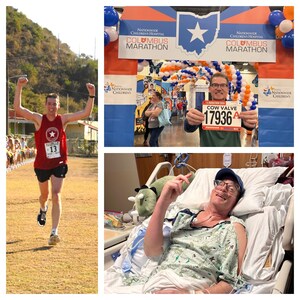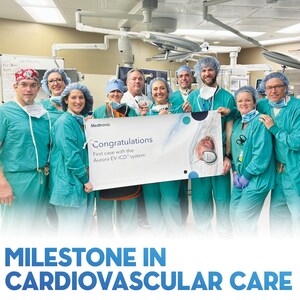EDGEWOOD, Ky., June 11, 2020 /PRNewswire/ -- St. Elizabeth is part of a group of cancer centers and other organizations joining together to form the COVID-19 and Cancer Consortium (CCC19) to collect and share data about cancer patients infected with the coronavirus (COVID-19).
As part of CCC19, St. Elizabeth submits information to a registry that includes participants from healthcare providers from the United States, The European Union, Argentina, Canada and the United Kingdom.
To collect information, CCC19 members fill out a survey that contains general patient care information. Patients remain anonymous and are not identified as part of the data collection.
Collected data includes:
- Patient demographic information
- COVID-19 diagnosis and course of illness
- Cancer diagnosis and treatment details
- Information about underlying medical conditions and smoking status
"We're really trying to get an idea of how this virus impacts the cancer population. We're studying as many patients as we can who've been impacted by cancer and COVID-19 to determine what the outcome might be and how that outcome might change depending on the treatment that they're getting," says Dr. Dan Flora, Medical Oncologist at St. Elizabeth, who is spearheading St. Elizabeth's CCC19 participation.
St. Elizabeth became involved in CCC19 after Dr. Flora learned through social media about the group's grassroots efforts. He quickly marshaled a team at St. Elizabeth and began collecting data to contribute to the registry's database.
CCC19 put the data to use with record speed. The registry already contains information about several thousand cancer patients with COVID-19. CCC19 released its first findings in an article published on May 28 in the leading medical journal, The Lancet (manuscript number THELANCET-D-20-09079R1). Initial results were also presented at the annual meeting of the American Society of Clinical Oncology (ASCO), which took place virtually this year.
The study's findings suggest that the 30-day fatality rate for cancer patients with COVID-19 infections is about 13 percent – more than twice the rate of the general population. Early results indicate that active cancer treatments, like chemotherapy, do not seem to impact the severity of the illness or the overall outcome of the infection. Investigators conclude that patients undergoing cancer treatments may continue with appropriate caution.
"The work that's been done on this has been unbelievable in such a short amount of time," says Barbara Logan, Clinical Research Director at St. Elizabeth. "Within a month, they had the registry up and running. Everyone wanted to be collaborative and supportive. Nobody is getting paid. There's nothing associated with this other than people being passionate about wanting to know how COVID-19 affects cancer patients and what data can come from it. Everybody bought in and just wanted what was best for the patient."
Research efforts like this will be invaluable when determining best practices for the care of cancer patients who also have COVID-19, according to Dr. Flora. "It will help us guide our decisions," he says.
The commitment to leading-edge research is one of the cornerstones of St. Elizabeth's oncology services and part of an already strong foundation they intend to build upon in the future with a new Cancer Center opening this fall on the St. Elizabeth Edgewood campus, says Dr. Flora.
"Research is going to be one of the pillars of the new Cancer Center. We want to prioritize cancer research as a way to find the best possible treatments for our patients. Certainly, by studying the outcomes of cancer patients, including cancer patients with COVID-19, we can learn about how to give the best treatment safely," he explains.
St. Elizabeth's work with CCC19 will continue long term. The group plans to continue gathering data and using it to guide care standards and practices.
"We're going to have new questions that are going to be asked and having access to this data enables us to keep asking those questions and finding more answers. It's going to be really impactful," says Logan.
"This work shows how community hospitals like St. Elizabeth can contribute a lot of important information. Not all research is being done at academic centers. Community hospitals like ours can help us learn a lot about cancer research and outcomes for our patients," says Dr. Flora.
About St. Elizabeth Healthcare
St. Elizabeth Healthcare operates five facilities throughout Northern Kentucky and more than 115 primary care and specialty office locations in Kentucky, Indiana and Ohio. A member of the Mayo Clinic Care Network, St. Elizabeth is a mission-based organization committed to improving the health of the communities it serves, providing more than $116 million in uncompensated care and benefit to the community in 2018. For more information, visit stelizabeth.com.
Public Relations
Phone: (859) 301-6300
Fax: (859) 301-6340
SOURCE St. Elizabeth Healthcare

Related Links
WANT YOUR COMPANY'S NEWS FEATURED ON PRNEWSWIRE.COM?
Newsrooms &
Influencers
Digital Media
Outlets
Journalists
Opted In






Share this article